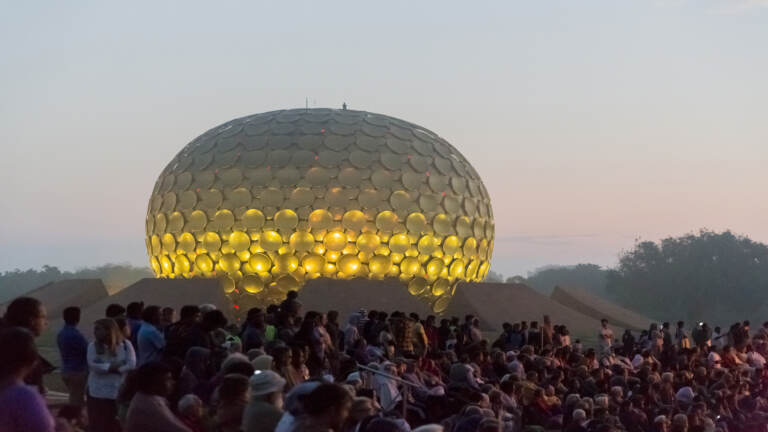Searching for Utopia
We explore modern attempts at real-life utopias.
Listen 49:26
For centuries, writers and philosophers have imagined what a perfect world might look like — if only we had a chance to start over, build it all from scratch.
The term “utopia” comes from ancient Greek. It literally means “no place,” but it’s also a pun on “eutopia,” meaning “good place.” In other words, it’s a good place that doesn’t exist.
But that hasn’t stopped a never-ending stream of dreamers and seekers — from political and economic theorists, to dictators, hippies, and religious zealots — from trying to create utopias of their own.
So what is it that makes the idea so seductive? Who is attracted to a more perfect world? And what happens when it all goes wrong? On this episode, we explore modern attempts at real-life utopias. We’ll hear about an AI researcher’s doomed mission to establish a post-apocalyptic community in the Scottish Highlands, what it’s like growing up in a utopian community, and the dark side of efforts to build sustainable smart cities around the world.
Also heard on this week’s episode:
- British academic Dylan Evans was in the midst of researching AI and emotions when he became gripped by the idea that technology would lead to the collapse of society. So Evans decided to design a community — a kind of laboratory to explore how survivors of the apocalypse could regroup and build a better, stronger world. Reporter Grant Hill talks with Evans about the rise and fall of that project — “The Utopia Experiment.”
- Author and journalist Akash Kapur has a better perspective on the possibilities and follies of utopias than most — he grew up in Auroville, an intentional community in South India created in the late 1960s. He calls his childhood there “magical” — but he later discovered it was much darker than he’d imagined. His book is “Better to Have Gone: Love, Death, and the Quest for Utopia in Auroville.”
- Massive planned city projects are springing up around the globe, promising a greener, smarter, and more sustainable urban life. McGill professor Sarah Moser collects data on new planned cities all over the globe, and has visited many of them. She explains why reality is often very different from what the sleek promotional videos promise.
WHYY is your source for fact-based, in-depth journalism and information. As a nonprofit organization, we rely on financial support from readers like you. Please give today.






